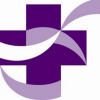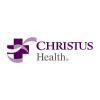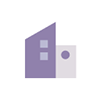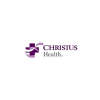DescriptionSummary : The competent Nurse, in the same or similar clinical setting, practices independently and demonstrates an awareness of all relevant aspects of a situation.
Provides routine and complex care, with the ability to on long-range goals or plans. Continues to develop the ability to cope with and manage contingencies of clinical nursing.
Makes appropriate assignments and delegates to other care providers as a means to help manage the clinical situation.The CHRISTUS Children’s Hospital, established in 1959, was the first children’s hospital in South-Central Texas.
Located downtown, this 190-plus-bed hospital serves more than 70,000 children annually from San Antonio, South Texas and around the world.
The hospital (in partnership with Baylor College of Medicine) is the only academic children’s hospital in San Antonio. Our highly specialized services meet the unique medical needs of children, from Pediatric and Neonatal Intensive Care to Children’s Emergency Services, the latest treatments for deformities of the spine including titanium rib implants and halo traction, a Heart Center, a specialized asthma program, a highly regarded Cancer and Blood Disorders Center, and growing maternal services to include consultation, delivery, and maternal fetal medicine.
Responsibilities : Meets expectations of the applicable OneCHRISTUS Competencies : Leader of Self, Leader of Others, or Leader of Leaders.
Consistent with the ANA Scope and Standards of Practice, provides nursing care utilizing the nursing process, including assessment, diagnosis, planning, intervention and evaluation for assigned patients.
Addresses increasingly complex psychological, emotional, cultural, and social needs of patient and families in accordance with their level of practice.
Using the appropriate protocol, administers medications and treatments; monitors for side-effects and effectiveness of the treatment prescribed.
- Documents patient history, symptoms, medication, and care given.Assess learning needs and provides education to patients, family members and / or care givers;
- identify issues and resources.CORE COMPETENCIESStandard I : Utilizes the Nursing ProcessUses critical thinking skills to assess the basic physical, psychosocial, social, cultural, spiritual, and development needs of patient and familiesCommunicates findings to appropriate healthcare team membersDevelops and uses a specific plan of care and modifies it to meet individual patient needs using evidence-based practiceImplements patient care and therapeutic procedures;
monitors and documents progression of treatment and teaching goalsEvaluates the care and treatment(s) provided to the patient and the patient response to the care and treatment(s)Performs timely reassessment and documentationMust be able to perform unit-specific competencies based on the specific patient care need for the designated unit's patient populationStandard II.
Patient Throughput & Patient Flow ProcessAnticipates and plans for admission / discharge / transfer needs to facilitate patient flowUtilizes appropriate systems of communication and tools to facilitate the discharge processCoaches on tools and techniques for checking, cross checking and validating orders to ensure accuracyStandard III.
Unit OperationsPlans, directs, and evaluates the overall nursing care and functions in a particular nursing unit during an assigned shiftDemonstrates good stewardship in proper use and maintenance of equipment and SuppliesAssesses departmental staffing needs;
actively participates in resourcing efforts.Educates and trains others on the operations, ethics, and regulations within the industryStandard IV.
- Safe Practice / Quality Care / RegulationsIncorporates patient safety practices / guidelines to promote a safe environment resulting in positive patient outcomesDemonstrates accountability for nursing research and quality improvement activitiesProvides evidence-based nursing careCommunicates patient information effectively across the continuum of careEducates and trains others on the operations, ethics, and regulations within the industryKnowledge of federal, state and local healthcare-related laws and regulations;
- ability to comply with these in healthcare practices and activitiesTECHNICAL COMPETENCIESClinical Policies and StandardsFollows a specific set of standards and associated clinical proceduresAnalyzes policy and standards documentation and ensures organizational complianceProvides feedback for improvement of proceduresAssists in the development and implementation of specific proceduresWorks with control and monitoring mechanisms, tools and techniquesHealth Information DocumentationShares experiences with maintaining paper and electronic patient documentationWalk through the steps and procedures for receiving, validating and updating patient recordsDescribes the flow of information between various stations or unitsDiscusses the functions, features and document flow of electronic documentationTranscribes verbal orders;
- explains techniques for ensuring their accuracyExplains health information documentation best practices and their rationale across health care practicesMedical EquipmentDescribes experience with basic medical equipment used in own unit or facilityUses standard diagnostic tools and techniques to resolves common equipment problemsEducates patients about the appropriate use of home medical equipmentEnsures that all equipment and related supplies are in proper working order prior to use to ensure patient safetyInspects, troubleshoots and evaluates incoming equipmentMedical Order ProcessingShares experiences with processing medical orders for one or more groups of patients or conditionsDescribes functions and features of the system used to enter, validate, update and forward medical ordersDiscusses common errors, their sources and procedures for correctingExplains considerations for entering and following standing ordersDifferentiates between standing orders and preprinted orders and considerations for eachPatient Chart Reading and InterpretationDescribes experiences in reading and interpreting patient charts for patients on unit and under own careReviews patients’ charts for completion and accuracy;
identifies and alerts to mistakes or omissionsRecognizes unexpected readings and alerts nursing or medical staffRelates examples of mis-readings or misinterpretations and lessons learnedReviews, discusses and validates own interpretation with othersPatient SafetyShares experiences with ensuring safety for one or more patient groups or settingsExplains key features of safety guidelines and procedures for those groups and settingsListens and responds to safety inquiries from patients and family membersRecognizes and addresses physiological and psychological signs of problemsDescribes considerations for patients who can cause to harm to self, versus harm to othersUtilizes appropriate systems to document misses and near misses, participates in immediate investigating, analysis and reporting in real-timeJob Requirements : Education / SkillsBachelor of Science Degree in Nursing, preferredExperience1 year of experience in the related nursing specialty preferredLicenses, Registrations, or CertificationsBLS requiredRN License in state of employment or compactWork Schedule : VariesWork Type : Full TimeEEO is the law - click below for more information : https : / / www.
eeoc.gov / sites / default / files / 2023-06 / 22-088 EEOC KnowYourRights6.12ScreenRdr.pdfWe endeavor to make this site accessible to any and all users.
If you would like to contact us regarding the accessibility of our website or need assistance completing the application process, please contact us at (844) 257-6925.



